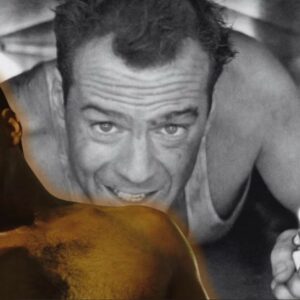Queen Latifah, born Dana Owens, is a name synonymous with versatility and innovation in the entertainment industry. From her early days as a pioneering rapper to her current status as a cultural icon, Latifah has continually pushed boundaries and reshaped societal norms. Her career spans decades and includes significant contributions to music, film, television, and social advocacy. This article delves into her remarkable journey, exploring her impact on trends and societal norms, and celebrating her legacy as a trailblazer.
1. Early Life and Career Beginnings
Queen Latifah was born on March 18, 1970, in Newark, New Jersey. Raised by her mother, Rita Owens, a schoolteacher, and her father, Lancelot Owens, a police officer, she grew up in a supportive yet challenging environment. Latifah’s early exposure to the arts came from her family’s encouragement and her own innate talent. She began rapping at a young age, performing in local clubs and contests. Her early performances were marked by a confident, commanding presence that set her apart from her peers.
Latifah’s breakthrough came in 1989 with the release of her debut album, All Hail the Queen. The album was a critical success, introducing her distinctive voice and powerful lyrics to a wider audience. Tracks like “Ladies First” and “U.N.I.T.Y.” not only showcased her lyrical prowess but also addressed social issues such as gender equality and racial justice. Her music was groundbreaking, blending elements of hip-hop with socially conscious messages that resonated with a broad audience.
2. Breakthrough and Versatility
While Queen Latifah’s music career was flourishing, her entry into acting marked a significant shift in her professional trajectory. Her breakthrough role came in the 1996 film Set It Off, where she portrayed Cleo, a tough and determined bank robber. The film was a commercial and critical success, and Latifah’s performance was widely praised for its depth and intensity. This role demonstrated her ability to transition seamlessly from music to acting, proving her versatility and broadening her appeal.
Latifah’s acting career continued to gain momentum with roles in films like Chicago (2002), for which she received an Academy Award nomination, and Hairspray (2007), where she played the larger-than-life character of Motormouth Maybelle. These roles not only showcased her acting range but also her capacity to inhabit diverse characters, further solidifying her reputation as a multifaceted entertainer.
3. Shaping Trends and Influencing Culture
Queen Latifah’s influence extends beyond her performances; she has also been a trendsetter in fashion, music, and film. Her style, characterized by its blend of sophistication and urban edge, has made her a fashion icon. Latifah has often used her platform to challenge conventional beauty standards, promoting body positivity and self-confidence.
In the music industry, she has been a pioneering force, particularly in the realm of female rap. Her success helped pave the way for future generations of female rappers, and her songs often addressed issues such as racial inequality and women’s rights. Her impact on hip-hop culture is undeniable, as she was one of the first female rappers to gain mainstream recognition and success.
Latifah’s influence in film has been equally significant. She has played a variety of roles that challenge stereotypes and offer new perspectives. Her performances in films such as The Bone Collector (1999) and Bringing Down the House (2003) have showcased her ability to handle both dramatic and comedic roles with equal skill.
4. Social Advocacy and Empowerment
Beyond her entertainment career, Queen Latifah has been a passionate advocate for social causes. Her activism is rooted in her personal experiences and her commitment to making a positive impact. Latifah has been involved in various charitable endeavors, including her support for HIV/AIDS awareness, women’s rights, and education.
She has used her platform to speak out on issues such as racial and gender inequality, and her work has helped raise awareness and inspire change. For instance, her involvement in the campaign for the empowerment of women and girls has been notable. Latifah has also been recognized for her efforts to support the LGBTQ+ community, further highlighting her commitment to inclusivity and social justice.
Latifah’s public image has consistently promoted empowerment and self-acceptance. She has been an advocate for breaking down barriers and challenging the status quo, using her voice to encourage others to do the same. Her advocacy work has not only influenced public opinion but has also set an example for others in the entertainment industry to follow.
5. Iconic Roles and Public Image
Queen Latifah’s most memorable roles have often reflected her influence and versatility. Her portrayal of characters who are strong, independent, and unapologetically themselves has resonated with audiences and contributed to her iconic status. In Living Single (1993-1998), she starred as Khadijah James, a successful magazine editor who broke away from traditional gender roles. The show was a groundbreaking representation of African American women and remains a cultural touchstone.
Latifah’s public persona is characterized by her confidence, charisma, and authenticity. She has managed to maintain a relatable image while achieving significant success in various fields. Her ability to balance her professional achievements with a genuine connection to her audience has been a key factor in her enduring appeal.
6. Legacy and Ongoing Influence
As Queen Latifah continues to evolve as an artist and advocate, her legacy remains a testament to her impact on culture and entertainment. Her contributions have paved the way for future generations of performers and activists, and her influence is likely to endure for years to come.
Latifah’s future contributions are eagerly anticipated, as she continues to explore new creative projects and advocate for important causes. Her enduring legacy is reflected in the numerous accolades she has received, including a Grammy Award, a Golden Globe, and several NAACP Image Awards.
Her impact on the entertainment industry and society at large is profound, and her career serves as a powerful example of how one individual’s talent and determination can effect meaningful change.
Conclusion
Queen Latifah’s journey from a pioneering rapper to a cultural icon is a testament to her extraordinary talent and impact. Her ability to shape trends, influence culture, and advocate for social change has solidified her place as a true trailblazer. As she continues to inspire and entertain, her legacy will undoubtedly continue to resonate, reflecting her significant role in shaping societal norms and breaking barriers. Her story is one of perseverance, creativity, and unwavering commitment, making her a lasting symbol of empowerment and cultural transformation.





